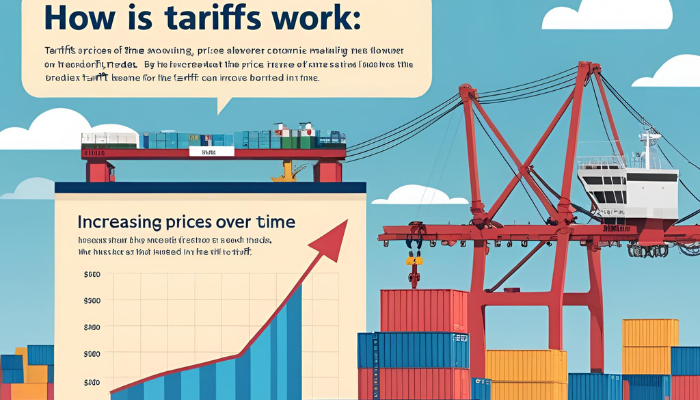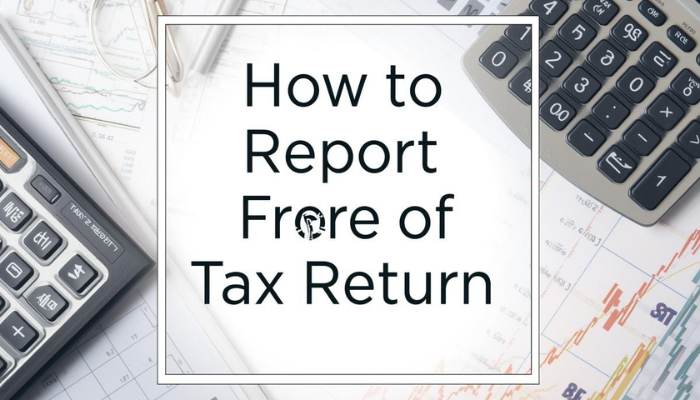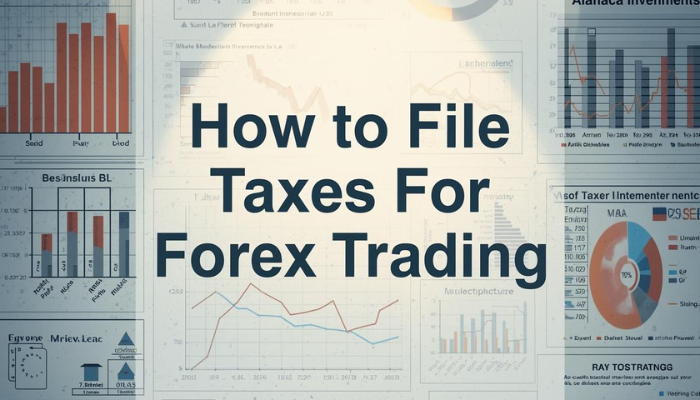
How Do Tariffs Work?
Have you wondered how do tariffs work? Tariff refers to a certain amount that a country charges on products and services imported from another country.
Countries often do trading business to meet consumer and economic requirements. However, geopolitical or budgetary concerns cause tensions in trade worldwide. In these situations, governments may strategically employ tariffs to:
- Safeguard domestic sectors
- Increase income
- Affect trade behavior
What is a Tariff and How Do Tariffs Work?
Tariffs raise the price of imported goods. They reduce their ability to compete with alternatives made domestically. Tariffs are often passed on to customers. It compels them to buy local products instead. This change can boost domestic output and lower import quantities.
Read: What is my tax collection district?
Types of Tariffs
There are two fundamental types of tariffs:
Specific Tariff
A specific tariff is a fixed amount per unit, such as $300 for each imported washing machine.
Ad-Valorem Tariff
Ad-valorem tariff is a percentage of the product’s value, such as a 10% tariff on imported electronics.
Why Governments Impose Tariffs?
The following are some of the reasons why governments impose tariffs:
- Raising revenue for the national budget.
- Defending domestic sectors from foreign disputes.
- Protecting customers from risky or substandard imports.
- Safeguarding national interests, particularly in times of trade imbalances or political unrest.
Unexpected Consequences of Tariffs
- Tariffs frequently have unforeseen implications, even though they may assist particular industries:
- The domestic industry may become less innovative and inefficient due to less competition.
- Increased costs for both local and imported items.
- Favoritism based on geography or industry might hurt non-targeted sectors or rural regions.
- Trade wars, as countries retaliate with tariffs of their own, raising tensions and economic instability.
Read: Are mission trips tax deductible?
Benefits of Tariffs
- Make money for the government.
- Promote more equitable trade negotiations.
- Encourage political and economic objectives.
- Maintain market stability.
Drawbacks of Tariffs
- Causes diplomatic disputes.
- Causes trade conflicts that hurt both parties.
What is the Simple Definition of a Tariff?
A tariff increases the cost of imported products for domestic consumers by imposing a tax or levy.
What is a Tariff Example?
A famous example is the British tea tax on American colonies, which sparked the American Revolution and the Boston Tea Party.
How Do Tariffs Work?
Tariffs work by making imports more expensive, encouraging consumers to purchase native goods and lessens reliance on imports.
Who Sets Tariffs in the USA?
The central constitutional authority to impose tariffs in the United States is Congress. Nonetheless, Congress has given the President some authority to modify tariffs in certain situations, such as:
- Trade emergencies
- National security issues
The President may also apply tariffs to rectify trade imbalances or respond to unfair trade practices.
Read: Do realtors qualify for QBI?
Who Regulates US Tariffs?
The main constitutional power to control American tariffs rests with Congress. Nonetheless, Congress has permitted the President and the executive branch part of this authority by law.
- The United States International Trade Commission (USITC) investigates trade issues.
- The US Customs and Border Protection (CBP) enforces tariff laws.
How Do Tariffs Work for Consumers?
Beyond the direct increases in prices, tariffs distort consumer behavior by resmolding the market structure. When an imported good becomes more expensive, domestic producers – who previously competed at a disadvantage – can increase their own prices. It potentially reduces competitive downward pressure. This leads to higher markups even on products with domestic alternatives.
In addition, consumers can face less variety or delayed innovation because the niche or premium foreign products may be phased out or discontinued in that market.
In effect, tariffs act like a hidden sales tax targeted at specific product categories. The ‘incidence’ of that tax often ends up with end-users and not producers.
Moreover, tariffs feed into inflation. They increase input costs throughout supply chains. A tariff on imported components (say, electronic chips) raises costs for manufacturers. This in turn drives up final prices on everyday goods – even those not directly imported.
Over time, wages can lag behind these rises. It can erode purchasing power. In a nutshell, consumers pay not just for the tax itself but for ripple effects across sectors.
How Do Tariffs Work When Buying Online?
When you shop online from an overseas retailer, the tariff mechanism often activates when your package enters local customs. The online seller or shipping agent must classify the item using a Harmonized System (HS) code. It triggers a duty assessed on the declared value (including shipping and insurance).
In many cases, the platform may present an ‘import duties and taxes’ line at checkout – though hidden fees may surface later. Carriers or customs brokers sometimes issue surprise bills upon delivery if tariffs were not prepaid.
In addition, online sellers can preemptively increase list prices or shift sourcing to countries with lower trade barriers to avoid abrupt duty surcharges being passed on to you.
Some sellers also use bonded warehouses or drop-shipping arrangements to defer tariff collection until sale. It smooths out cost shocks. Thus, your finalized online purchase price can silently incorporate tariff risk, whether disclosed or postponed.
The Bottom Line
When assessing trade policy, it is crucial to comprehend how do tariffs work. Tariffs can help local businesses, promote national interests, and restart halted interactions. However, they must be used carefully to prevent wider economic damage.
Contact L&Y Tax Advisor for the best financial assistance in the US!


